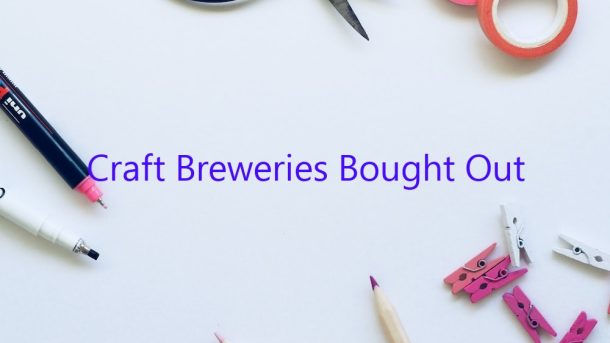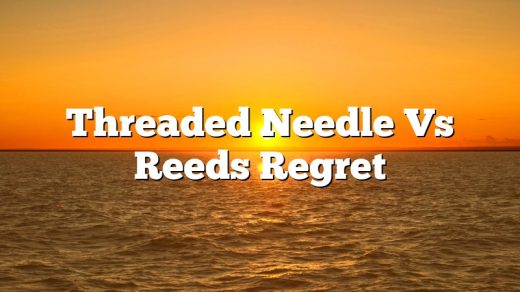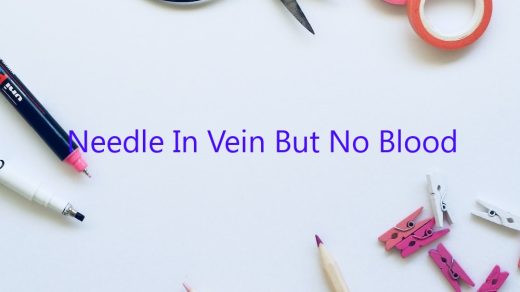Craft breweries are being bought out at an alarming rate, with Anheuser-Busch InBev purchasing 10 of them in the past two years.
This is a major concern for beer lovers, as it could mean a decline in the quality and variety of craft beers available. It could also mean that small breweries will have to sell out to big brewers in order to stay afloat, which could lead to a homogenization of the beer market.
It’s important to note that not all craft breweries are being bought out, and there are still many independent breweries out there. However, the trend is worrying, and it’s important to be aware of it if you’re a fan of craft beer.
Contents
What craft breweries are owned by Anheuser Busch?
Anheuser Busch InBev (AB InBev) is a multinational beverage corporation with headquarters in Leuven, Belgium. It is the world’s largest brewer and has a portfolio of more than 500 beer brands. AB InBev owns a number of craft breweries, including Goose Island, 10 Barrel, Blue Point, Elysian, Golden Road, and Wicked Weed.
Goose Island was founded in 1988 by John Hall and is headquartered in Chicago, Illinois. The brewery has a portfolio of over 30 beer brands, including Goose Island IPA, 312 Urban Wheat, and Honker’s Ale. Goose Island was acquired by AB InBev in 2011 for $38 million.
10 Barrel Brewing was founded in 2006 by Jeremy Cox and Garrett Wales and is headquartered in Bend, Oregon. The brewery has a portfolio of over 10 beer brands, including Hop Ottin’ IPA, Apocalypse IPA, and Easy Peeler. 10 Barrel was acquired by AB InBev in 2014 for $70 million.
Blue Point Brewing was founded in 1998 by Peter DiCristina and is headquartered in Patchogue, New York. The brewery has a portfolio of over 20 beer brands, including Toasted Lager, Blue Point Mosaic IPA, and Hoptical Illusion. Blue Point was acquired by AB InBev in 2014 for $24 million.
Elysian Brewing was founded in 1995 by Dick Cantwell and is headquartered in Seattle, Washington. The brewery has a portfolio of over 20 beer brands, including Superfuzz Blood Orange Pale Ale, Avatar Jasmine IPA, and Space Dust IPA. Elysian was acquired by AB InBev in 2015 for $85 million.
Golden Road Brewing was founded in 2011 by Meg Gill and is headquartered in Los Angeles, California. The brewery has a portfolio of over 10 beer brands, including Heal the Bay IPA, Point the Way Pilsner, and Wolf Among Weeds IPA. Golden Road was acquired by AB InBev in 2015 for $500 million.
Wicked Weed Brewing was founded in 2012 by Walt and Luke Dickinson and is headquartered in Asheville, North Carolina. The brewery has a portfolio of over 20 beer brands, including Freak of Nature DIPA, Pernicious IPA, and Angel of Darkness. Wicked Weed was acquired by AB InBev in 2017 for $275 million.
Did Anheuser Busch get bought out?
Anheuser Busch InBev, the world’s largest brewer, is in talks to buy out SABMiller for $106 billion.
The deal would create a brewing behemoth, uniting AB InBev’s Budweiser and Stella Artois brands with SABMiller’s Castle Lager and Peroni.
It would also be the largest takeover in history, dwarfing the $52 billion paid by Pfizer for Wyeth in 2009.
AB InBev has been on the acquisition trail in recent years, buying up US craft brewers such as Goose Island and Blue Point, as well as Mexican brands such as Modelo and Corona.
SABMiller, meanwhile, has been looking to reduce its exposure to Africa and Latin America, where growth prospects are weaker.
The proposed deal, which has yet to be finalised, is likely to face stiff regulatory scrutiny.
AB InBev is already the world’s largest brewer, while SABMiller is the second largest.
The combined company would have a market share of around 30% globally.
The two companies have been in talks for some time, and the deal is expected to be finalised by the end of October.
Is the craft beer industry declining?
The craft beer industry has exploded in recent years, with thousands of small-batch breweries popping up across the country. But is the industry in decline?
There are certainly signs that the craft beer market is becoming saturated. In fact, the amount of beer produced by small and independent breweries has grown by more than 600 percent since 2010, while the overall beer market has remained relatively flat. This means that the craft beer industry is now accounting for more than 20 percent of the beer market.
So why might the industry be in decline? One reason is that big beer companies are starting to muscle in on the craft beer market. For example, Anheuser-Busch InBev, the world’s largest brewer, has been buying up craft breweries left and right. In fact, the company has bought more than a dozen craft breweries in the past few years.
Big beer companies are able to buy up craft breweries because they have a lot of money to throw around. And they’re not the only ones. A lot of venture capitalists are also getting into the craft beer industry, which is driving up the prices of craft breweries.
All of this investment is starting to have an effect on the industry. A lot of small-batch breweries are starting to close up shop, and the ones that are remaining are finding it harder and harder to compete.
So is the craft beer industry in decline? It’s hard to say for sure. But there are certainly signs that the market is becoming saturated, and that it’s becoming more and more difficult for small-batch breweries to compete.
Who bought out Breckenridge Brewery?
On July 2, 2015, Breckenridge Brewery announced that it had been acquired by AB InBev, the largest brewing company in the world. AB InBev is best known for its brands Budweiser, Stella Artois, and Corona, among others.
The takeover of Breckenridge Brewery by AB InBev has raised concerns among beer lovers and craft brewers alike. Some worry that the acquisition will lead to a decline in the quality of Breckenridge Brewery’s beer, while others are concerned about the future of small, independent craft brewers in the United States.
AB InBev has said that it plans to keep Breckenridge Brewery’s brewery in Colorado and that it will continue to produce the same variety of beers. However, many in the craft brewing community are skeptical of AB InBev’s intentions, and some have even started a boycott of the company’s beers.
What do you think about the acquisition of Breckenridge Brewery by AB InBev? Let us know in the comments.
Is Bud Light made by Budweiser?
Is Bud Light made by Budweiser?
Bud Light is the most popular light beer in the United States. It is produced by Anheuser-Busch InBev, the largest beer company in the world. Budweiser is a brand of beer produced by Anheuser-Busch InBev. Some people mistakenly believe that Bud Light is made by Budweiser, but this is not the case.
Who owns Corona beer?
Corona Extra is a pale lager produced by Grupo Modelo in Mexico. It was first brewed in 1925. Corona is the best-selling beer in Mexico and the United States.
The company that produces Corona, Grupo Modelo, is a joint venture between the Belgian company Anheuser-Busch InBev and the Mexican company FEMSA. Anheuser-Busch InBev owns a 50% stake in Grupo Modelo, and FEMSA owns the other 50%.
Who bought Miller beer?
In March, MillerCoors announced that it had been sold to Molson Coors Brewing Company. The $12 billion deal made Molson Coors the second-largest beer company in the United States, behind Anheuser-Busch InBev.
The sale of MillerCoors has been seen as a way for the two companies to better compete in a growing U.S. market. The combined company will have a portfolio of brands that includes Coors Light, Miller Lite, Blue Moon, Molson Canadian, Carling, and Staropramen.
According to Molson Coors CEO Mark Hunter, the deal will allow the two companies to “more quickly respond to changing consumer preferences and trends.” He added that the merger will create “a stronger, more competitive company that can better serve our customers and grow our business.”
The sale of MillerCoors is expected to be completed in the second quarter of 2019.




